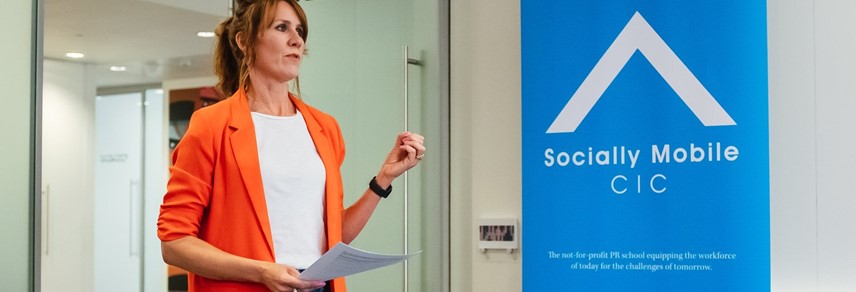
QUARTER OF SOCIALLY MOBILE'S FIRST GRADUATES PROMOTED
Since its launch last year, the Socially Mobile programme has helped launch graduates from underrepresented backgrounds into careers in public relations, with a quarter having already received a promotion.
The Socially Mobile Community Interest Company, founded in 2020 by Sarah Waddington CBE and Stephen Waddington, has seen 25% of graduates to its Socially Mobile programme report a promotion or new job opportunity, and a further 75% report a positive impact on their career. The programme launched last year and has set a goal of training 500 practitioners from underrepresented backgrounds over the next ten years.
According to a report from the company, three quarters of graduates believe the Socially Mobile programme has had a positive impact on their career, and three in five graduates have noticed an immediate impact on their work in terms of confidence, a contemporary understanding of public relations practice and development of management knowledge. After its first year, 46 of a total 47 students have successfully graduated.
In 2021, one fifth of respondents to the Public Relations and Communications Association (PRCA) Census reported having attended fee-paying schools, compared with just seven percent of the population. Sarah Waddington CBE says: “We had aspirations through Socially Mobile to create a genuinely transformational programme that would increase the earning potential of our students.
“The training has delivered this and more, resulting in life changing opportunities for some graduates. We are hugely grateful to all the students who have trusted us with their professional development and cannot thank enough those who have contributed to make this community interest company a reality.”
Over a ten-week course, the Socially Mobile programme provides management training to public relations practitioners from lower-economic backgrounds and under-represented groups, including ethnic minority practitioners, members of the LGBTQ+ community, women returning from career breaks and those with disabilities.
Waddington continues: “If we are to create a real step change and truly level the UK public relations playing field, however, our industry needs to create better pathways and education for school leavers, which will require a significant change in thinking and investment.”
All Socially Mobile students with fully funded places, who successfully graduate, receive PRCA and Chartered Institute of Public Relations (CIPR) membership for a year to support their continued development. Every student who graduates receives a place on the AMEC Foundation in Media Measurement and Evaluation Course.


